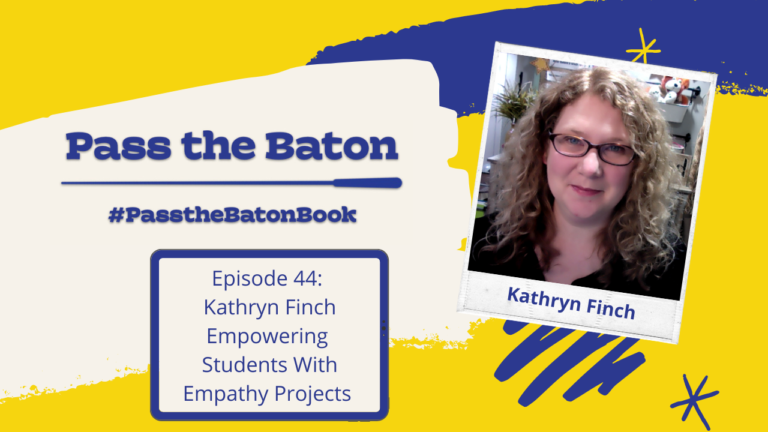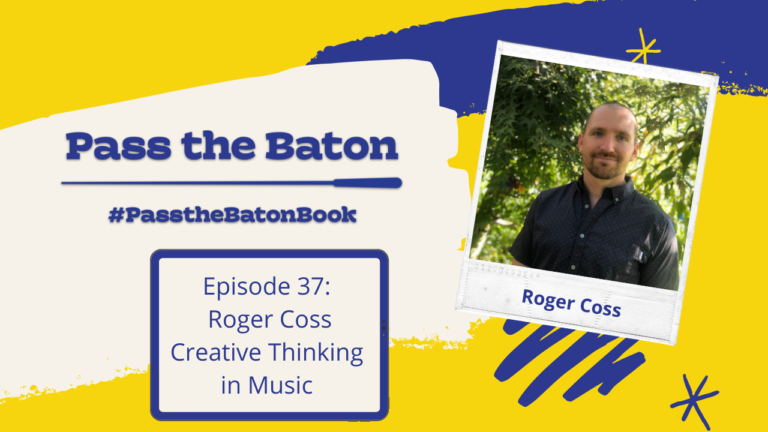Abigail Blair is pre-k through 5th-grade general music teacher in the Chicago suburbs. She has a bachelor’s degree from Augustana College and a master’s degree from Boston University. Abigail has created several games that help empower her music students.

Prior to creating the games, Abigail felt her student couldn’t talk about music, despite what she was teaching them. She found students saying things like “that’s weird” or “I don’t like it,” instead of using music vocabulary. She wanted her students to talk about music intelligently, and be able to articulate what they love and don’t love about a piece of music. Abigail wanted students to understand music from other cultures and appreciate it.
Jazz Idol
The first game Abigail created was called Jazz Idol. This game gave students the opportunity to listen to and learn about various jazz artists. Jazz Idol follows the format of American Idol. The students are the judges and they “audition” musicians. Students vote for the musicians and determine who advances to the next round. First the students listen to the artist, then learn facts about their lives. For musicians who make it to the next round, students will watch videos of their performances and read children’s books about them. Abigail has found the students connect with the musicians this way, and want to learn more about them even outside of class time.
Abigail has expanded Jazz Idol into several other genres. In the game Dead or Alive: The Composer Challenge, students learn about both dead and living composers. The students listen to music by the composers, get to know more about their lives, and vote for their favorite dead composer and favorite living composer.
Abigail’s Other Games
In World’s Got Talent, similar to America’s Got Talent, the students “travel the world” to find music from each continent. Another game, Battle of the Bands, has students learning about rock-and-roll music. They study rock anthems, ballades, and rock style.
The Joey Awards combines musical theater and STEAM. The students are part of the “academy;” they are the judges who must think critically to understand things like costume design and lighting. After learning more about each topic and studying the masters, students have an award show, like the Tony’s or the Master’s.
Abigail’s newest game is called Instrument Family Feud. All questions have to do with instrument classifications, how they are made, what sounds they make, and things like that.
Throughout all her games, Abigail does not worry about points earned or which musician “wins” the game. She is happy the students have to think and discuss throughout each step of the process. As a result, her students now can talk about music. Since students are the “judges,” they can create criteria to evaluate music, which is one of the National Standards! Students have conversations with their peers about the music they listen to, thinking critically about the intent behind the music and discussing why it’s important.
“They’re able to talk with each other about what matters when you’re listening to music…it’s thinking critically, what is the intent behind the music?”
Abigail’s Advice to Teachers
If teachers want to get started creating games like this for her students, Abigail suggests first choosing the genre or musical topic students will talk about and connect with. Then find a “hook” to use throughout the game. Abigail often uses a short video, sound, or image that indicates to students it’s time to start the game. When determining the structure, Abigail suggests borrowing from other well-known games and looking at what game shows or reality shows are currently popular. There is no reason to create a new game structure from scratch. Finally, make sure there is an element of discovery within the game. The students shouldn’t be told all the information, instead they should discover it the entire time. Abigail also mentions that students are always the judges in her games, so they aren’t playing against their classmates. She does not want there to be elements of competition in these games, instead students are united in what they do.

Connect with Abigail on Twitter @AbigailSBlair, Instagram @MusicWestmoor, or through her website, Building Musical Minds.
For more gamification resources, check out the Blair Finch Project Website, Music Appreciation Through Gamification and the book Full STEAM Ahead.
Check out the full interview here: Empowering Students With Games




